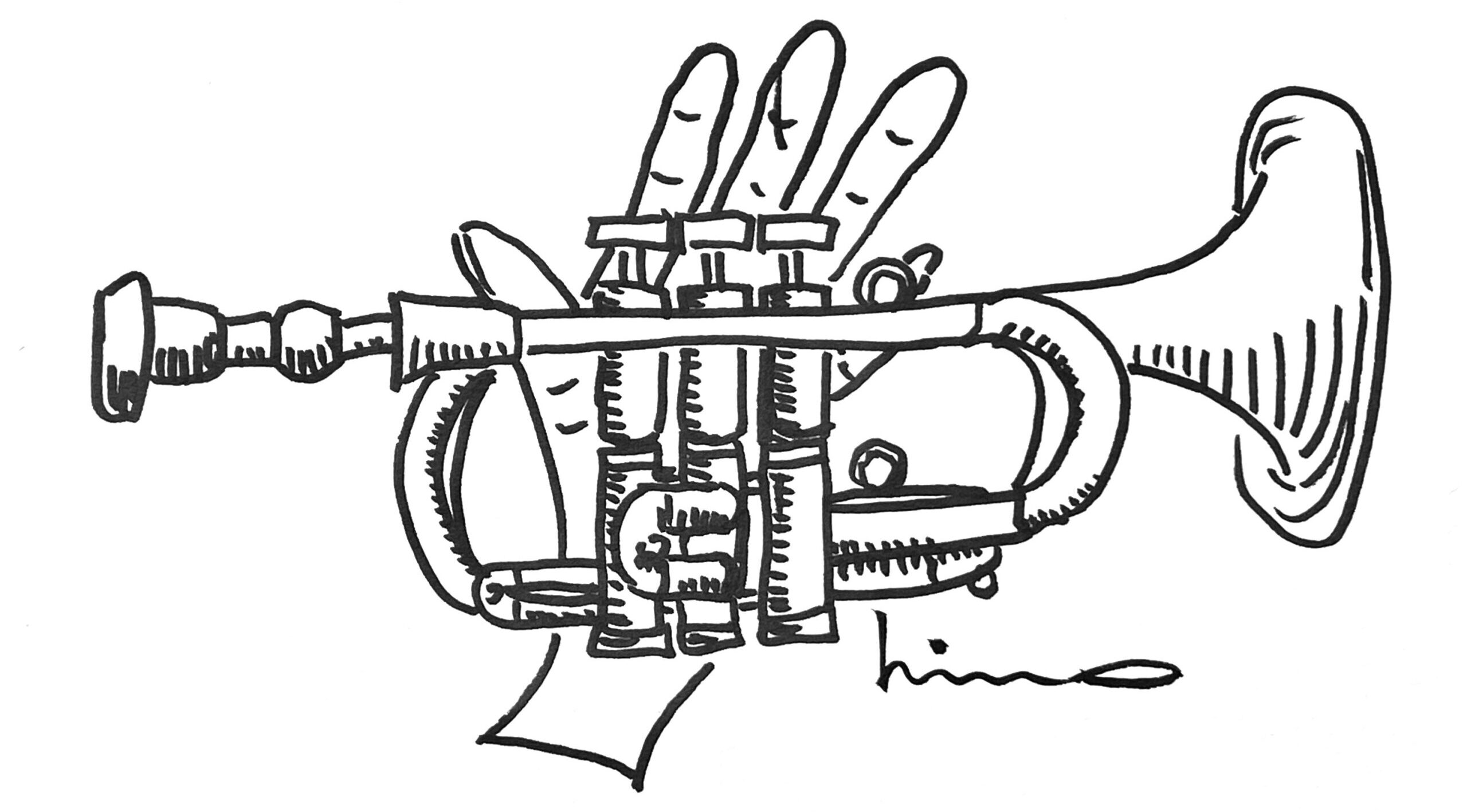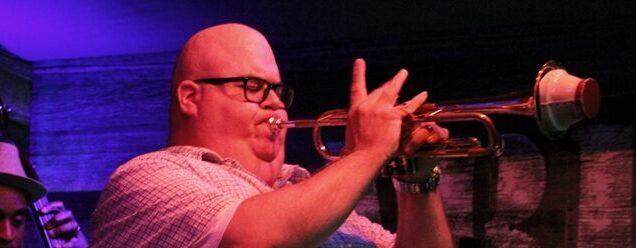“I can play all I know in eight bars.”
CHARLIE PARKER
“It’s taken me all my life to learn what not to play.”
DIZZY GILLESPIE
“Music washes away the dust of every day life.”
ART BLAKEY
“By nature men are nearly alike; by practice, they get to be wide apart.”
CONFUCIUS
“His resolve is not to seem, but to be, the best.”
AESCHYLUS
“There’s no such thing as bop music, but there’s such a thing as progress.”
COLEMAN HAWKINS
“There’s enough ugliness in the world. I’m interested in beauty.”
TADD DAMERON
“They really inspired me. I’d listen to them and be stunned, man. I didn’t know the right names for anything at first, but I knew what knocked me out…Changes, man. I dug.”
ROY ELDRIDGE on Coleman Hawkins and Benny Carter
“With bop, you had to know—not feel; you had to know what you were doing.”
HOWARD MCGHEE
“You have to enjoy playing. The old-timers did, and that’s one reason why their music is a lasting music. I feel that I play jazz to entertain the listener, and you just can’t do that unless you yourself are entertained at the same time.”
BARRY HARRIS
“He’d play a phrase and people might never have heard it before. But he’d start it, and the people would finish it with him humming. It would be so lyrical and simple that it just seemed the most natural thing to play.”
DIZZY GILLESPIE on Charlie Parker
“I could hear what he was doing, and I knew what he was doing was right [harmonically]. I mean, here’s a guy who’s playing everything that he wants to play and playing it, you know. And I was sitting there thinking, ‘Jiminy, listen to this.’ And he was playing all the changes, and playing them fluently, like they were just meant for to be there…And I said, ‘What am I doing out here fooling around with this horn? I don’t even know what’s happening.’…And I never heard nobody play a horn like that—that complete.”
HOWARD MCGHEE on first hearing Charlie Parker
“I think I was a little more advanced, harmonically, than he was. But rhythmically, he was quite advanced, with setting up the phrase and how you got from one note to another. How you get from one note to another really makes a difference. Charlie Parker heard rhythms and rhythmic patterns differently, and after we started playing together, I began to play, rhythmically, more like him…The enunciation of notes, I think, belonged to Charlie Parker because the way he’d get from one note to another, I could never…That was just perfect for me. I came from an age of Roy Eldridge, and Roy Eldridge got from one note to another much differently from Charlie Parker. What I did was very much an extension of what Roy Eldridge had done—Charlie Parker definitely set the standard for phrasing our music.”
DIZZY GILLESPIE on Charlie Parker and rhythm
“I’d like to just play a perfect melody of my own, all the chord progressions right, the melody original and fresh—my own.”
FATS NAVARRO
“You forget about changes when you play the blues, but every now and then you put in a little lick in there to let them know, ‘Here’s where I’m at, really.’”
DIZZY GILLESPIE
“I remember sometimes the other musicians would forget to come in on time because they were listening to Bird so much. They’d be standing up there on the stage with their mouths wide open. Goddamn, Bird was playing some shit back then.”
MILES DAVIS on Charlie Parker in the Billy Eckstine Band
“End your phrases where you feel they should end, don’t look for resolutions you don’t feel because the books call for them.”
TADD DAMERON
“I believe in things that are developed through hard work. I always like people who have developed long and hard, especially through introspection and a lot of dedication. I think what they arrive at is usually a much deeper and more beautiful thing than the person who seems to have that ability and fluidity from the beginning. I say this because it’s a good message to give to young talents who feel as I used to.”
BILL EVANS
“At this time the fashion is to bring something to jazz that I reject. They speak of freedom. But one has no right, under pretext of freeing yourself, to be illogical and incoherent by getting rid of structure and simply piling a lot of notes one on top of the other. There’s no beat anymore. You can’t keep time with your foot. I believe that what is happening to jazz with people like Ornette Coleman, for instance, is bad. There’s a new idea that consists in destroying everything and find what’s shocking and unexpected; whereas jazz must first of all tell a story that anyone can understand.”
THELONIOUS MONK
“One very important thing I learned from Monk was his complete dedication to music. That was his reason for being alive. Nothing else mattered except music, really.” SONNY ROLLINS
“Anyone can make the simple complicated. Creativity is making the complicated simple.”
CHARLES MINGUS
“I don’t consider myself a musician who has achieved perfection and can’t develop any further. But I compose my pieces with a formula that I created myself. Take a musician like John Coltrane. He is a perfect musician, who can give expression to all the possibilities of his instrument. But he seems to have difficulty expressing original ideas on it. That is why he keeps looking for ideas in exotic places. At least I don’t have that problem, because, like I say, I find my inspiration in myself.”
THELONIOUS MONK
“I knew how to play, um, I figured, I had learned the scale. I’d learned how to play two tunes in a certain key, in the key of D for your saxophone, F concert. I learned to play the first eight bars of “Lazy River” and I knew the complete tune of “Honeysuckle Rose.” I didn’t never stop to think about different keys or nothing like that. [Laughter] So I took my horn out to this joint where a bunch of fellows I had seen around were, and the first thing they started playing was “Body And Soul,” Longbeat, you know? Shit! So I got to playing my “Honeysuckle Rose,” I mean, an awful conglomeration. They laughed me off the bandstand. They laughed at me so hard…Yeah, then I knew it must be figured out some kind of way. [Laughter] That was it…”
CHARLIE PARKER on the event that inspired him to truly practice [12 hours a day]
“Dizzy, beside being a phenomenal musician, could relate—he knew everything he played—to the chords and changes. That’s what his mind was thinking about playing. I knew he was playing great, and I could hear what he was playing, and you always figure, ‘One of these days I’ll play like that,’ but you never realize that in order to play like that you have to know what you’re playing. You have to relate it to the chords and the changes that you’re playing, plus having the ability to be a good improviser.”
CECIL PAYNE
“Music is my religion. Music is the only thing that has never failed me. People let you down, music won’t.”
GARY BARTZ
“The first time I heard Bird play, it hit me right between the eyes.”
JOHN COLTRANE
“I’ve come close to matching the feeling of that night in 1944 in music, when I first heard Bird and Diz, but I’ve never quite got there…I’m always looking for it, listening and feeling for it, though, trying to always feel it in and through the music I play every day.”
MILES DAVIS 1989
“It’s just music. It’s playing clean and looking for the pretty notes.”
CHARLIE PARKER

